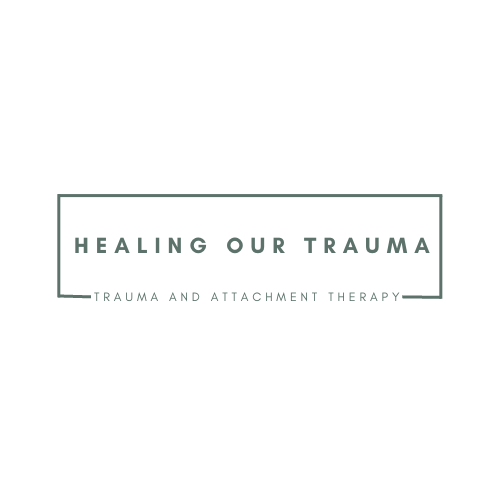Complex Traumatic Stress Disorder
Complex Post-Traumatic Stress Disorder (C-PTSD) is a mental health condition that can develop as a result of prolonged exposure to traumatic and stressful events, particularly those involving interpersonal trauma occurring repeatedly or cumulatively. Mental health experts frequently use C-PTSD to describe a variety of symptoms that go beyond those typically associated with traditional PTSD.
Complex Post Traumatic Stress Disorder Symptoms
A qualified mental health professional should make a diagnosis of C-PSTD after conducting a thorough assessment of symptoms and their impact on functioning. While C-PSTD may manifest with other symptoms, the following are the most prevalent.
Emotional Dysregulation
Individuals with C-PTSD often struggle with regulating their emotions. This can manifest as intense mood swings, difficulty managing anger or sadness, and a heightened reactivity to stressors. Emotional dysregulation is a central aspect of C-PTSD.
Distorted Self-Image
C-PTSD can lead to an unstable and negative self-concept. Individuals may struggle with feelings of worthlessness, shame, and guilt. The self-image may be distorted by the impact of the prolonged traumatic experiences.
Impaired Relationships
Difficulties in forming and maintaining healthy relationships are common in C-PTSD. Trust issues, challenges with intimacy, and a fear of abandonment can significantly impact interpersonal connections. Individuals may cycle between idealizing and devaluing others.
Dissociation
Dissociative symptoms, such as depersonalization (feeling detached from oneself) and derealization (feeling detached from the external world), are prevalent in C-PTSD. These experiences may serve as a coping mechanism to manage overwhelming emotions or stress.
Complex Post Traumatic Stress Disorder Therapies
There are various therapeutic approaches designed to address different aspects of complex post traumatic stress disorder. The below therapies are just a few of the care options available, each offering unique strategies to support individuals on their journey to improved mental health.
EMDR Therapy
EMDR, or Eye Movement Desensitization and Reprocessing, is a powerful and evidence-based therapy approach that helps individuals process and heal from trauma.
Internal Family Systems/Parts Work
IFS and Parts Work Therapy, delves into an individual's psyche, exploring internal "parts" or sub-personalities. The goal is to facilitate dialogue and integration among these parts under the guidance of the core, compassionate "Self." Through visualization and introspection, clients work towards harmony, healing trauma, and achieving a more balanced and unified sense of self. IFS promotes personal growth, self-awareness, and addressing trauma, emotional regulation, and self-empowerment.
Mindfulness-based Therapy
Mindfulness- based therapy approach focuses on cultivating awareness and presence to help individuals and couples navigate through life's challenges. Through mindfulness practices, we aim to provide a safe and supportive space for healing and growth.
Complex PSTD FAQs
Have questions? We’re here to help.
-
Can Recovery from Complex-PTSD be a Reality?
Recovery from complex PTSD is indeed possible with effective treatment, support, and determination. While complex trauma presents lifelong challenges, individuals can experience significant improvement in symptoms, enhance their quality of life, and foster a sense of empowerment and self-growth. Recovery varies for each individual, and it requires time, self-compassion, and ongoing support. Seeking help from mental health professionals who specialize in trauma care is fundamental in the recovery journey from complex PTSD.
-
What does Complex-PTSD feel like?
Living with complex PTSD can feel like an ongoing battle between the past and the present, as traumatic memories and experiences continue to impact daily life. It is a constant struggle with intense and overwhelming emotions, intrusive thoughts, and a heightened state of arousal. Flashbacks can transport individuals back to the trauma, causing them to relive the fear and helplessness they once felt. Dissociation, a detachment from oneself or reality, may also occur as a way of coping with overwhelming emotions. Complex PTSD can lead to difficulties in forming and maintaining healthy relationships, as trust issues and feelings of isolation often arise.
-
What is the difference between CPTSD and PTSD?
While both complex PTSD (CPTSD) and post-traumatic stress disorder (PTSD) are related to experiencing traumatic events, there are some distinguishing factors that set them apart.
PTSD typically develops after a single traumatic event, such as a car accident or physical assault, whereas CPTSD results from repeated and prolonged trauma, often occurring in childhood or spanning over an extended period.
At Healing Our Trauma we know that you want to be on a path to recovery and restoration. In order to do that, you need to address your underlying, unmet needs. The problem is most people don't know where to turn to or how to start which makes you feel frustrated and stuck. This leads some to want to quit. We believe in your resilience and the possibility of reclaiming a life marked by strength, growth, and renewed hope. We understand that overcoming trauma is a journey that requires personalized care, empathy, and a safe space for healing.
So, schedule a free evaluation. And in the meantime, sign-up for our Support Newsletter.
Together, we can navigate this journey toward healing, ensuring that you not only survive but thrive in the aftermath of trauma.
Contact Us
816-200-7909
Contact Us
We will get back to you as soon as possible
Please try again later
Insurance Accepted: Aetna (Missouri Only)
Forms of Payment: Cash, Check, Visa, Mastercard, Discover, American Express
Our address
Email: nadirah@healingtraumakc.com
Tel: 816-200-7909
12401 E 43rd St S, Independence, MO 64055, United States of America
Work Hours
- Mon - Fri
- -
- Sat - Sun
- Closed

